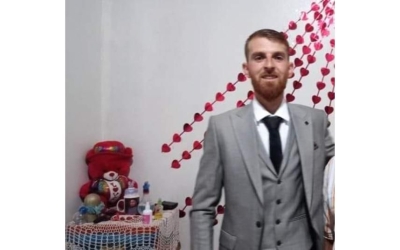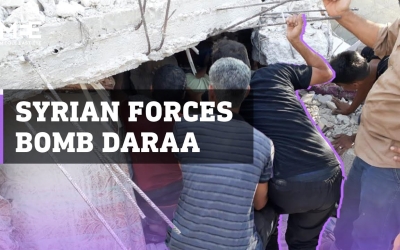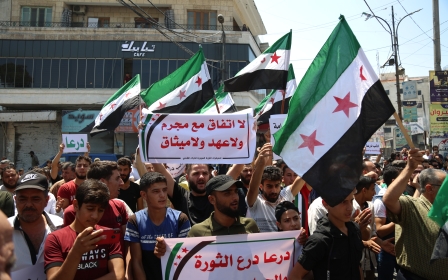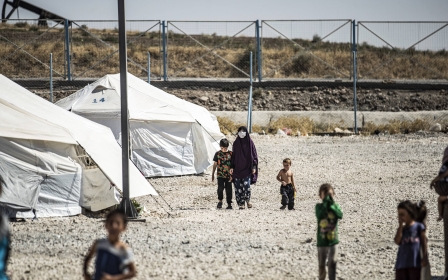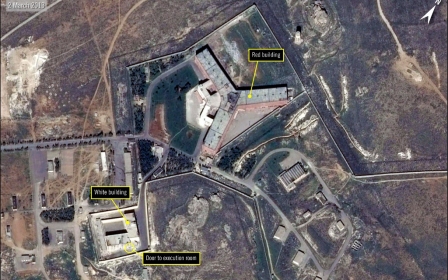Syria: Sporadic fighting in Daraa as negotiations falter
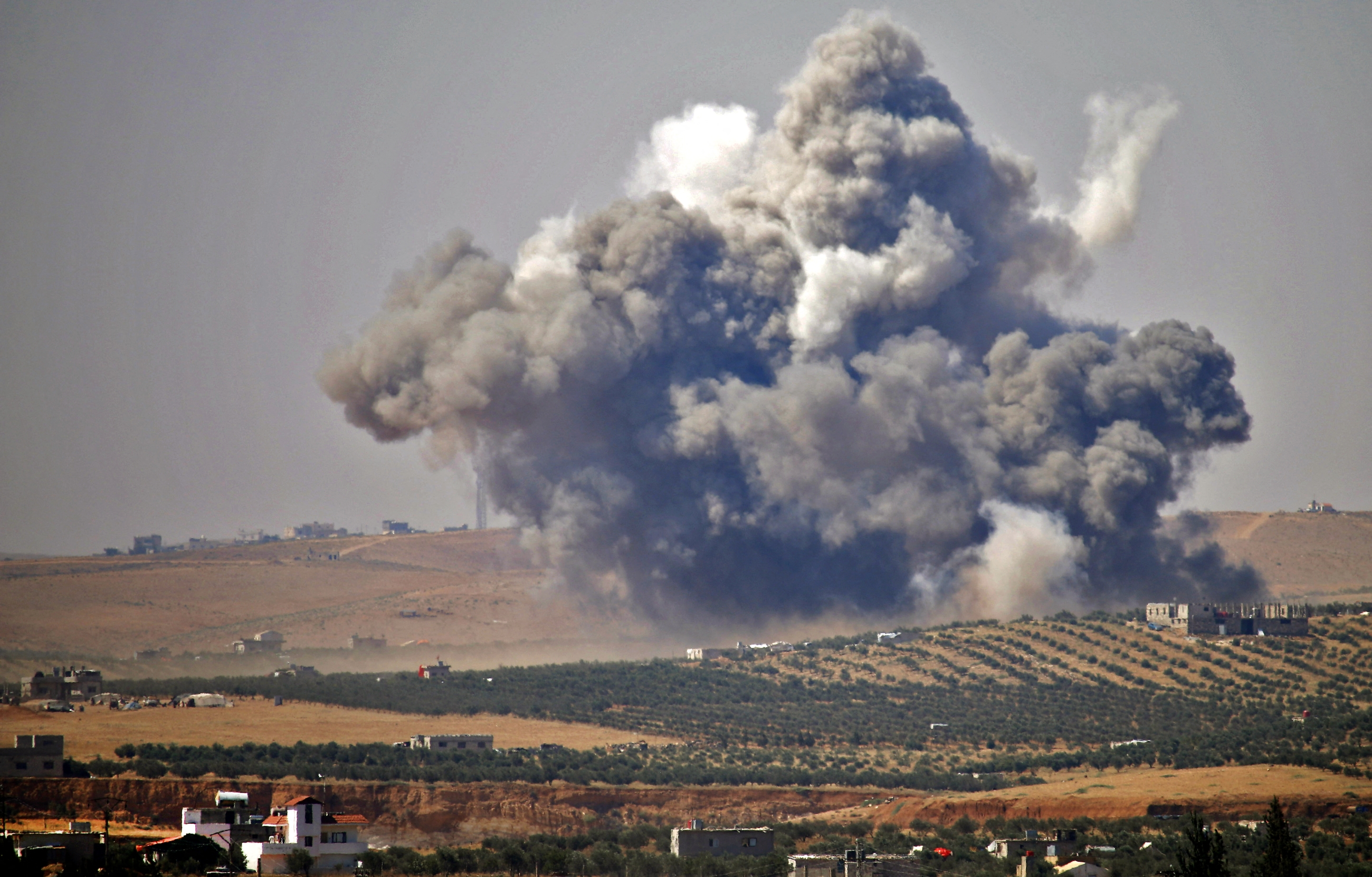
Rebel fighters launched sporadic attacks on government positions in Syria's southern province of Daraa on Monday night after another round of negotiations failed.
Following widespread calls for a general alert in the province, rebels escalated their attacks to repel forces loyal to Syrian President Bashar al-Assad who bombed Daraa and tried to enter it by force after negotiations failed.
The majority of the attacks were focused on a government military checkpoint operated by the State Security Branch and a checkpoint belonging to the notorious Military Security Branch, in the city of al-Hara, north of Daraa.
In addition to surprise attacks on pro-Assad forces in the city of Nuwa and the town of Dail in the north of the province, rebels cut off the highway connecting Daraa to the capital Damascus, and the M5 international highway connecting Syria with Jordan.
Negotiations between the government and a local committee run by regional elders have been faltering for about a month, with the Government Negotiations Committee insisting on the deployment of pro-Iranian forces in the city.
"The local committee today submitted new proposals for the deployment of pro-Russian forces instead of pro-Iranian forces," a source close to the local committee told Middle East Eye (MEE).
The troops would include former rebels serving in the Russian-backed Fifth Corps, as well as Russian military police forces.
Constant threats
“They spoke in an unacceptable threatening tone yesterday, which escalated the tension. They said we will demolish Daraa and burn it completely if you do not respond to our conditions,” the source said.
The meeting was attended by Syrian Defense Minister Ali Ayoub and a Russian officer responsible for security matters in southern Syria known as "Assad Allah".
“The local committee made major concessions, including handing over 70 rifles, but the regime is not serious about negotiations,” the source added.
The local committee has agreed to the entry of forces loyal to Assad into the city and home searches, provided that they are accompanied by civil society notables and Arab clans to avoid violations against civilians.
The Arab clans, of which rebels are members, have been at the forefront of events, issuing a statement on Monday titled: The Time Has Come.
The statement called on the people of Eastern Ghouta in the suburbs of Damascus and Aleppo, who had joined forces loyal to Assad under reconciliation agreements, to rebel and defect.
“Our cause is one. Help us in facing the Iranian occupation that forced the people of the cities of Darayya, Zabadani, Douma, Homs and Aleppo to flee,” the statement read.
"Syria is ours, not for the mercenaries of the Iranian Revolutionary Guards, who engage you in battles to expand Iran's influence."
Militias loyal to Iran use the Syrian army as a cover for their activities, most notably the Fourth Division, which is run by Maher al-Assad, the brother of the Syrian President, along with the Ninth Division.
On Friday, local media broadcast interviews with captured officers and members of the First Corps, the Fifth Division, and the 15th Special Forces Division in the Syrian army, who said that they receive their orders directly from the Iranian forces.
The fighters were captured during large-scale rebel counterattacks in separate areas late last week in response to a security operation launched by Iranian-backed forces in the city of Daraa.
The operation came after a new agreement was reached on 23 July, through which three military points were established inside the city to end the government siege imposed since late last month.
But when pro-Assad forces entered the city, they conducted military parades that were widely seen as provocative and raided civilian homes under the pretext of searching for wanted persons, which resulted in the clashes that destroyed the new agreement.
Pro-Assad forces were forced to withdraw to the area surrounding Daraa’s after intense clashes, and launched massive artillery and missile attacks, killing about 18 civilians last week.
No other solution
Last week's attacks were the largest escalation of its kind in southern Syria since pro-government forces with Russian support took control of Daraa province in late 2018.
At that time, a reconciliation agreement was concluded between the rebels and the government, on the ruins of the 2014 de-escalation agreement between Russia, Iran and Turkey, for a ceasefire in four Syrian regions, including Daraa.
The rebels fear Iran’s expansion in the area and the transformation of Daraa city into a military barracks to curb any potential rebel activity in the city, which was the birthplace of Syria’s 2011 revolution against Assad.
Rebel operations have become more popular as they are seen as a fight against the growing influence and activities of Iran-linked militia in Syria.
“They are forcing us into an all-out confrontation, they leave us no other choice,” a rebel fighter who took part in the recent attacks in north of Daraa told MEE.
"According to our information, the militias loyal to Iran are responsible for all the almost daily assassinations and insecurity in the province.
"Our operations will continue if the Iranian militias continue to expand in our land, and if the regime and its allies continue to operate with a security mentality.”
Middle East Eye delivers independent and unrivalled coverage and analysis of the Middle East, North Africa and beyond. To learn more about republishing this content and the associated fees, please fill out this form. More about MEE can be found here.


